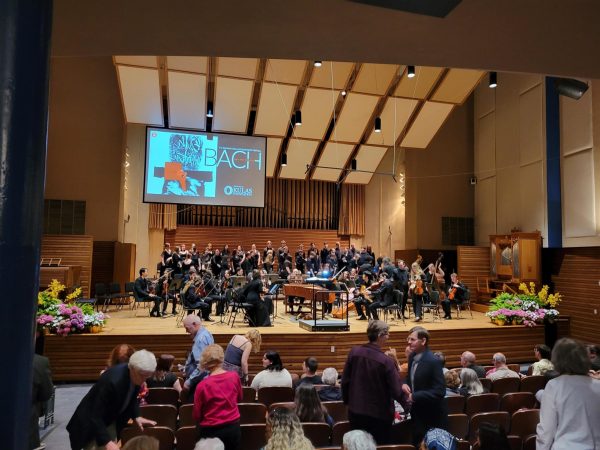Counseling Center debuts new ‘robust’ online self-help tool
A new self-help program put in place by the Counseling Center this spring could help students excel in their academics.
This new program known as Therapy Assisted Online (TAO) has been in use by other institutions since 2014 but has just been added to the my.bw.edu under the Counseling Center subsection. This program is the Counseling Center’s first comprehensive and easy to use self-help online program.
Programs like TAO have previously existed on the My BW website with programs such as a guided meditations, self-assessments tools, and mental health awareness tools, as well as resources for self-help. The problem with this is that each program fulfilled one small task such as meditation exercises or links to self-help information and were not one comprehensive program.
“One of the strengths of TAO is just how robust it is” says Timothy Hall, the assistant director of Outreach and Prevention at the Counseling Center.
TAO provides tools and guides for stress management, mindfulness, problem-solving, relationship skills and strategies to help develop more helpful thinking patterns. Unfortunately, because all these programs have been “tuckedinto” the My BW site, and many students do not know that these resources are available to them.
“Typically, the way that I’ve noticed that it works is we recommend [the programs] to students” says Hall.
Since the implementation of TAO onto My BW, however, The Counseling Center has been advertising the new program adamantly so that these advertisements may open the eyes of students who have never considered any self-help resource.
Hall says that the “promotion of health and wellbeing across all dimensions” is a goal for the Counseling Center on BW’s campus.
According to Hall, using TAO as an easily accessible module will hopefully benefit students greatly. Beyond the use by students who are familiar with the counseling center or have ever used a self-help program, TAO can be a resource for those in stressful situations.
College students often feel wiped out and stressed by their school work. TAO is built to help provide “the skill set to know how to cope with stress “effectively” as well as “how to identify when stress might be getting out of hand,” said Hall.
Notably, TAO provides unique modules that suit different types of stress that students may receive.
“They get the help tailored to what their experience is,” said Hall.
By using a program that applies directly to a student’s biggest stress source this program is much more effective than a generalized stress management presentation or workshop.
“If you’re not feeling well personally, that’s absolutely going to affect your performance in the classroom academically,” he said.
Hall made it clear that the notion that a program like this is only for those seeking substantial mental health help is false. The TAO program is a resource for any student who feels that they could use help facilitating their thoughts. Unhealthy or stressful thoughts can easily bleed into a student’s academic work and cause poor performance.
As Karen Heft, secretary and office manager at the Counseling Center, said, “This program is a great opportunity for students.”
Any students who are overwhelmed with stress, want to improve their problem-solving skills, more generally wish to adopt better-thinking behavior, or are worried about their academic performance are encouraged to seek out the newly implemented TAO program on my.bw.edu.
The Exponent is looking for financial contributions to support our staff and our newsroom in producing high-quality, well-reported and accurate journalism. Thank you for taking the time to consider supporting our student journalists.












































